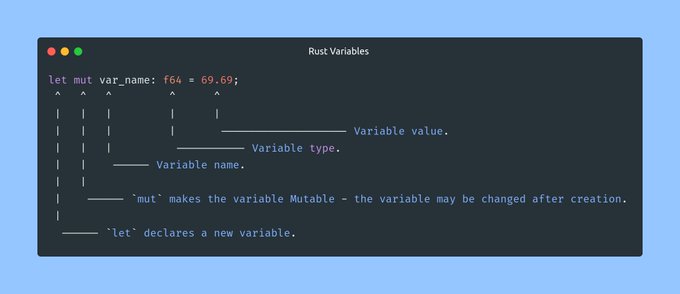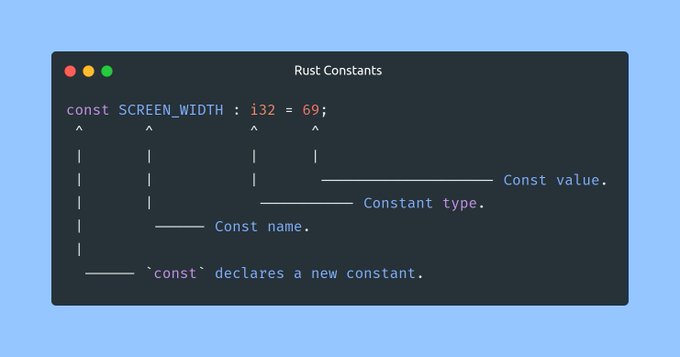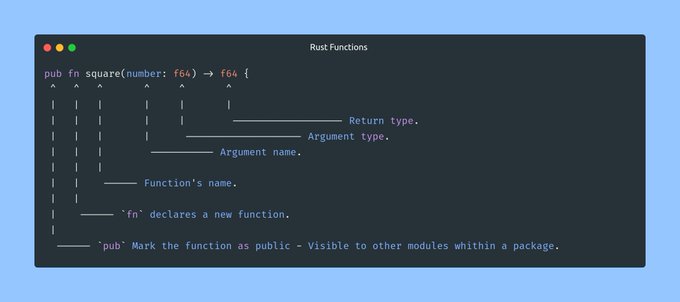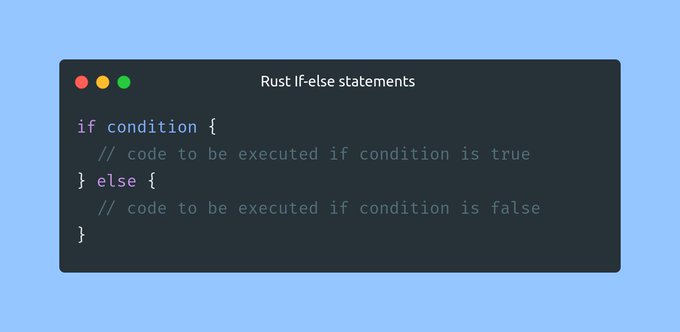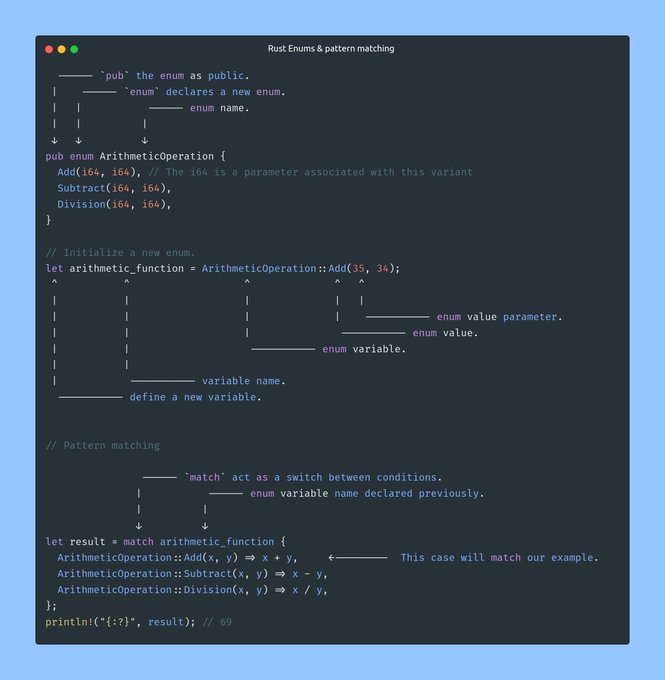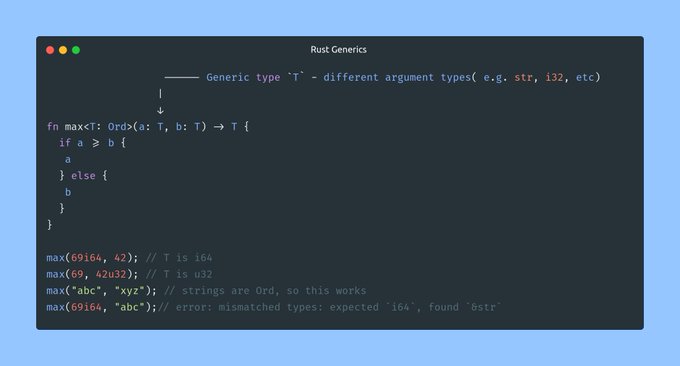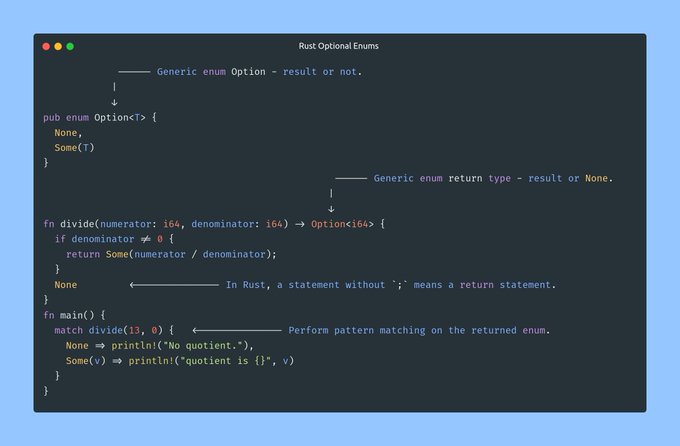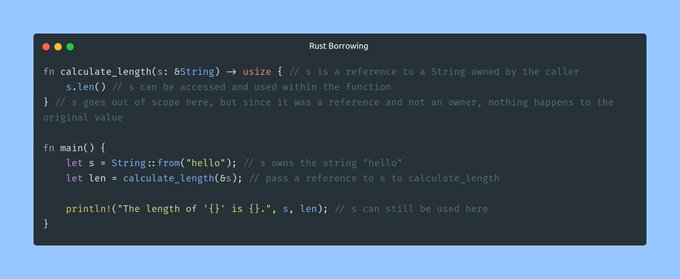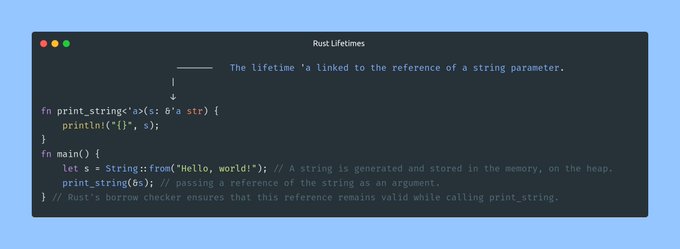🧵 Quick Tour
-
Rust’s Variables.
- Rust’s variable declaration is powerful and supports type inference (in case you didn’t explicitly mention it) for mutable and immutable bindings.
let mut var_name: f64 = 69.69; -
Rust Constants.
- Constants in Rust are a great way to define values that cannot be altered, providing both performance benefits and compile-time safety.
const SCREEN_WIDTH: i32 = 69; -
Rust’s Functions.
- Rust’s functions are expressive and flexible, with support for return values, parameters, and closures.
-
If statements.
- If statements in Rust are concise and readable, with support for both simple and complex conditions.
-
Rust Enums.
- Enums in Rust are a powerful way to define a set of related values, with support for associated data and pattern matching.
-
Rust Generics.
- Rust’s generics provide a powerful way to write reusable code, with support for constraints and default types.
-
Optional Enums.
- Optional enums in Rust provide a powerful way to handle optional values, with support for pattern matching and fallback values.
-
Ownership in Rust.
- Ownership in Rust provides a unique way to manage memory, ensuring that only one owner can modify a value at any given time.
-
Rust Borrowing.
- Borrowing in Rust provides a safe way to allow multiple references to a value, without allowing mutation or invalidation.
-
Rust Lifetimes.
- Lifetimes in Rust provides a way to manage the lifetime of references, ensuring that they are valid for as long as they are needed.
You can refer to this twitter thread for more info.
